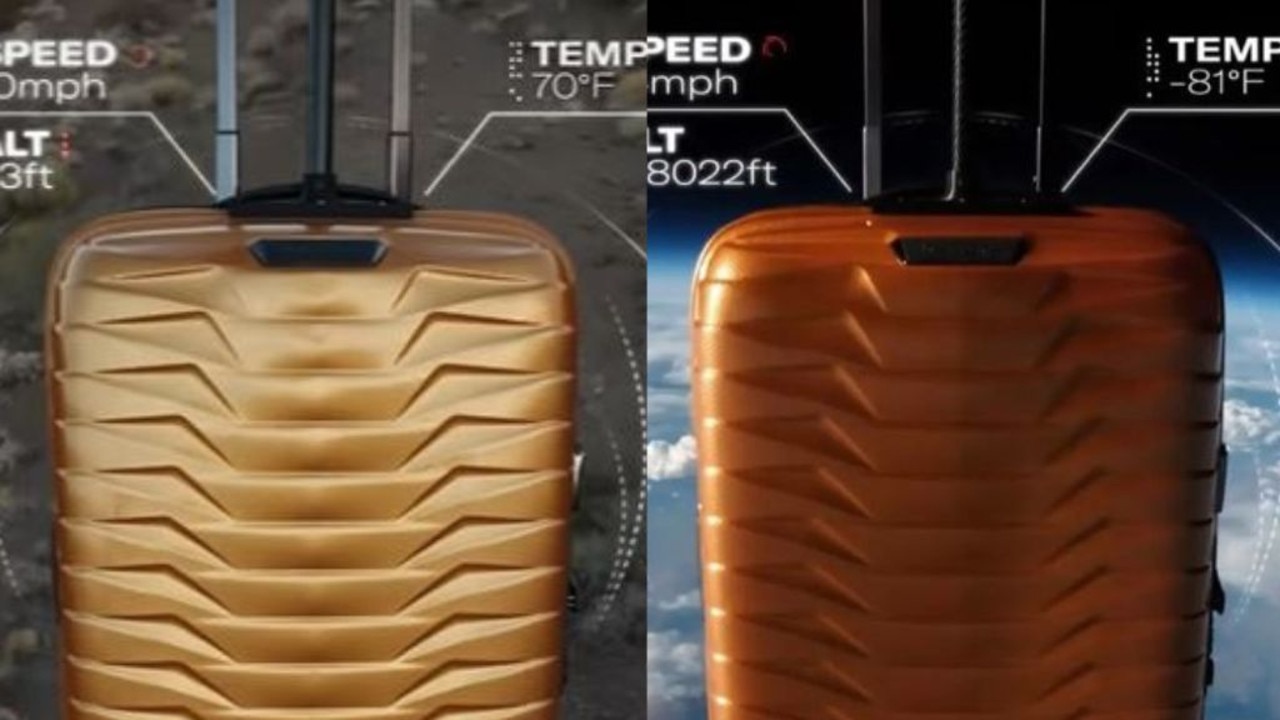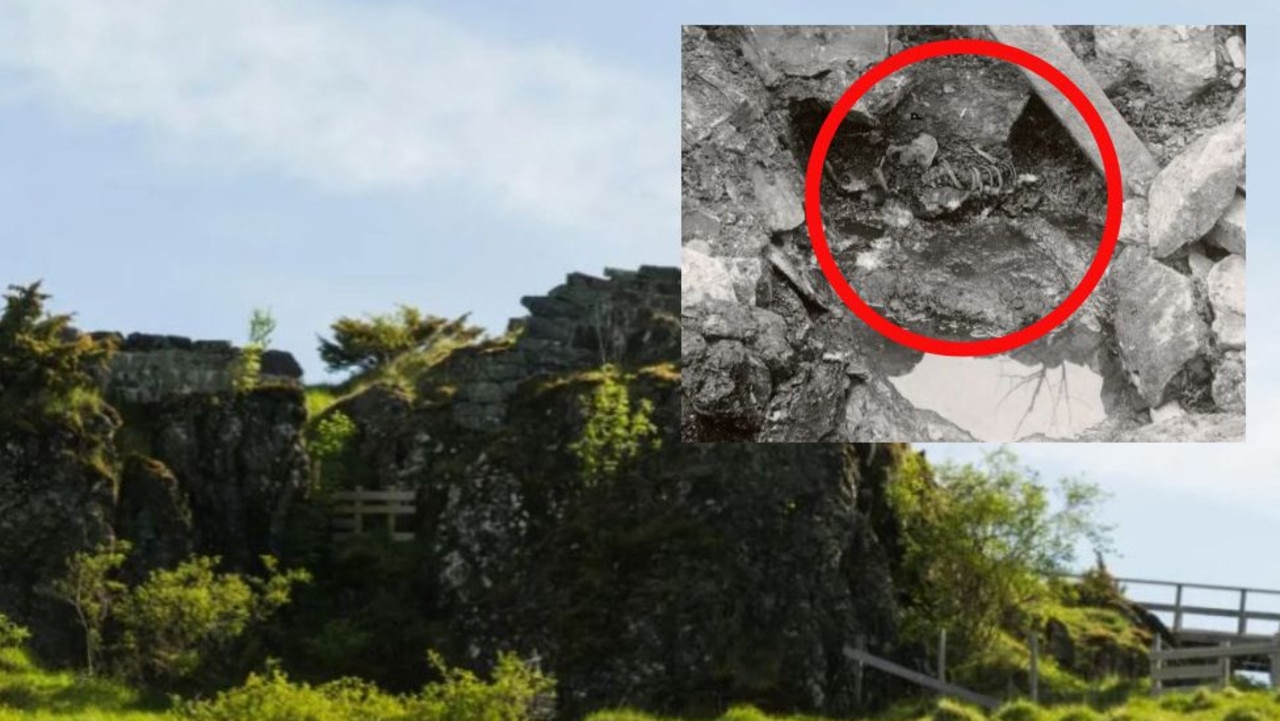Man’s video goes viral after playing with poisonous sea slug
A TikTok user has posted a video of himself playing with a sea creature – but thousands were quick to warn him the animal was highly poisonous.
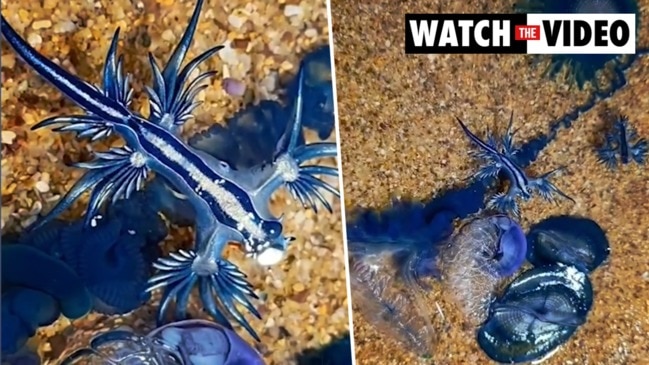
It’s the mesmerising creature that caught the attention of an Aussie bloke hitting the east coast.
But the cute, blue-striped ‘sea slug’ could have left TikTok user @julianobayd seriously ill if it had stung him.
Dancing in the water, these spectacular and rare creatures actually absorb the poison of other creatures – so they can pack a quite a punch if you get stung.
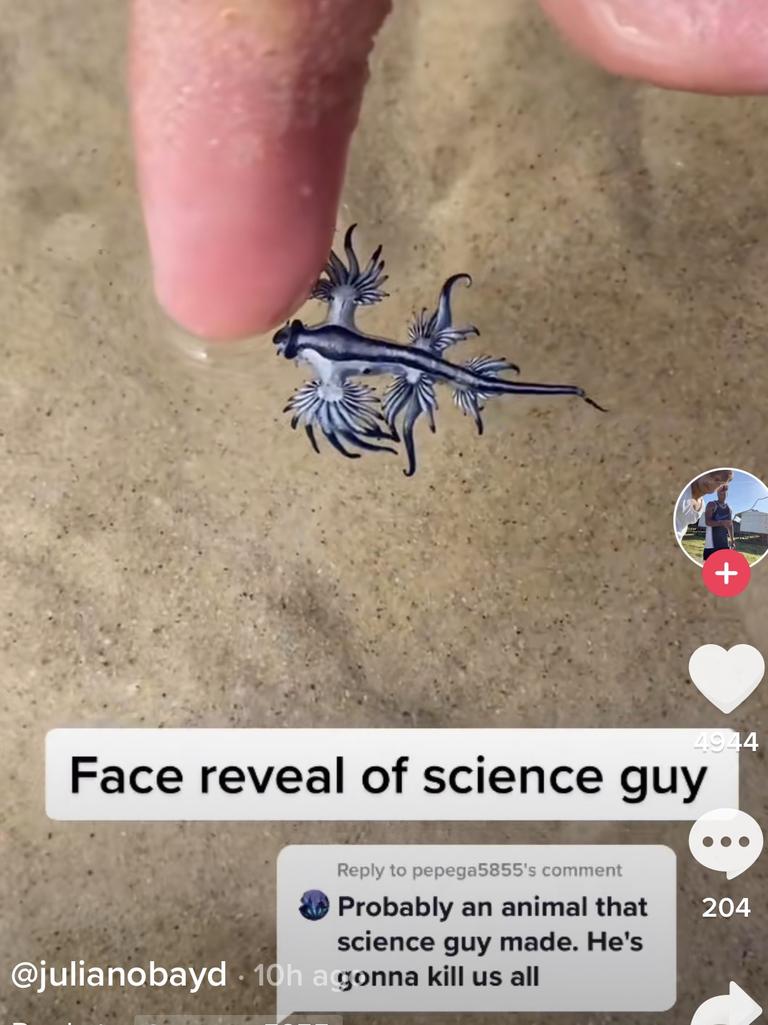
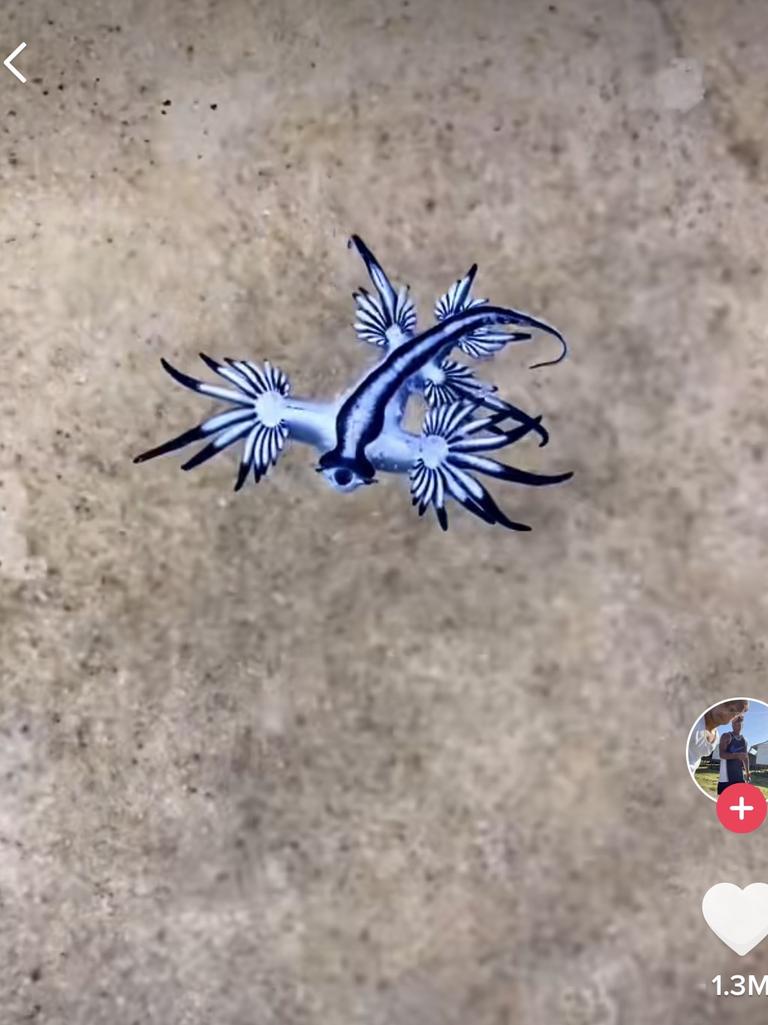
From jellyfish to bluebottles, the glaucus atlanticus – also known as sea swallow, blue angel, blue dragon or blue sea slug – typically float upside-down on the surface tension of the water, where they are carried along by the winds and ocean currents.
The blue of their body allows them to be camouflaged with the blue of the water, while the other side is silver/grey which faces downwards to blend with the silvery surface of the sea as viewed from below.
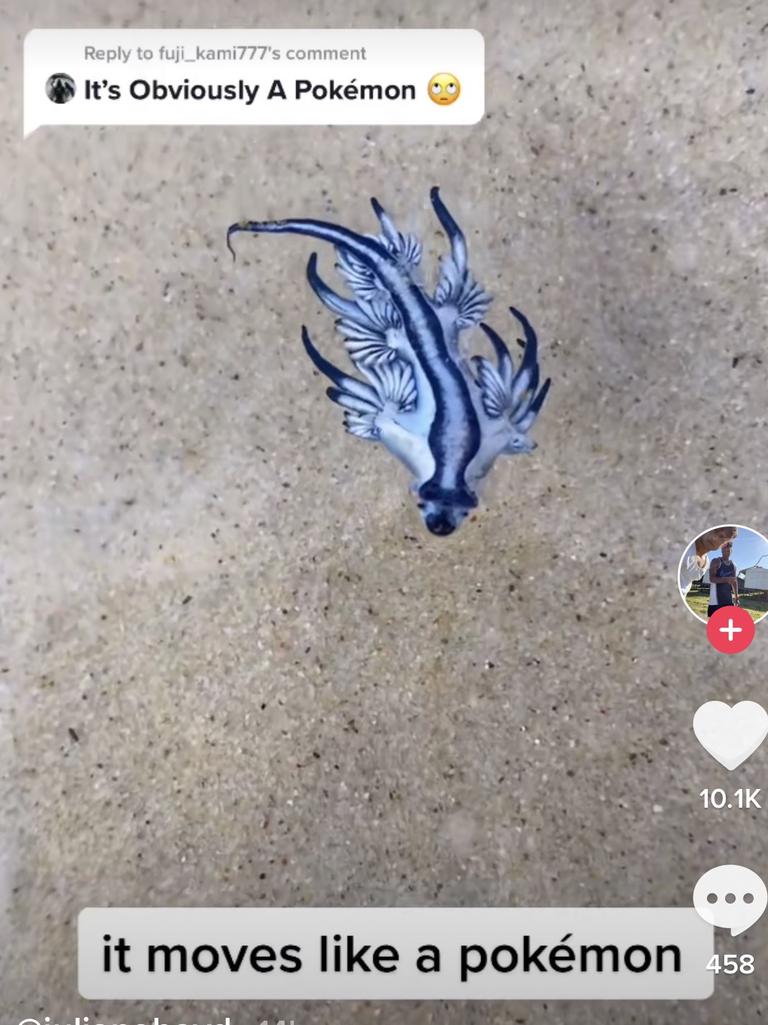
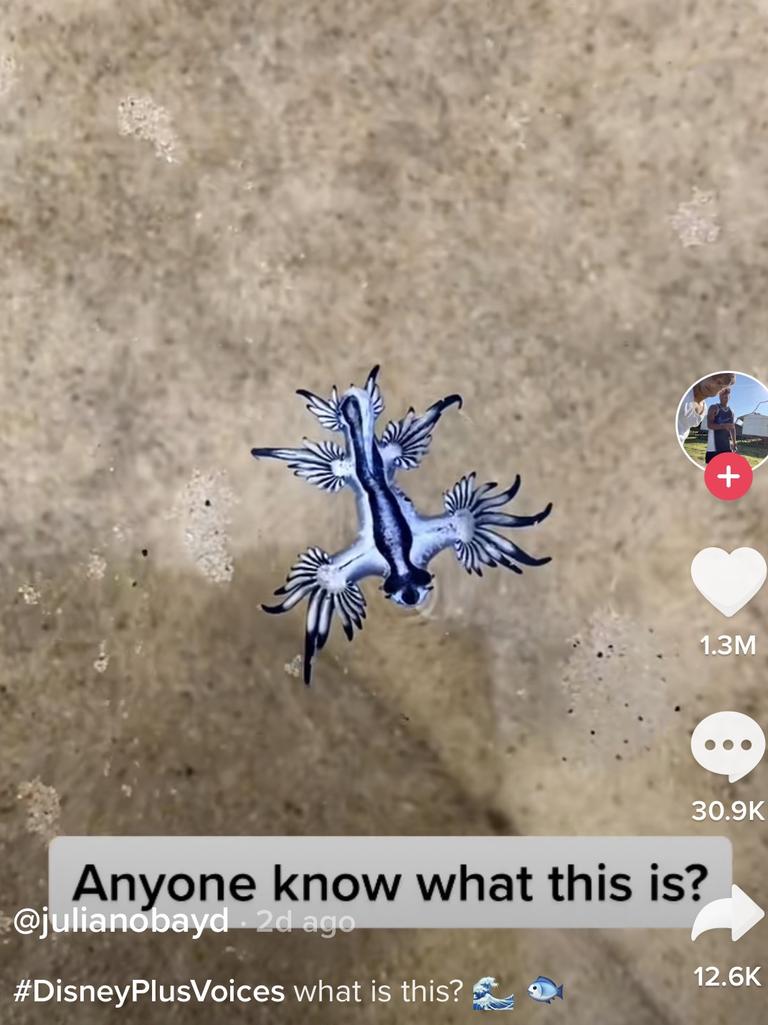
They also feed on other pelagic creatures, including the venomous Portuguese Man o’ War or the blue bottle. They then store the other creature’s poison within their own tissues as a defence against predators.
As a result, humans handling the slug may receive a very painful and potentially dangerous sting.
The creatures have been spotted along Australia’s east coast in recent years.
And despite the TikTok user joking about it looking like a Pokemon, he was lucky to walk away unharmed – as his 48,000 followers were quick to point out.
The post on the video, which shows the user behind the account handling and poking the creature, received more than 1.3 million likes and 31,000 comments.
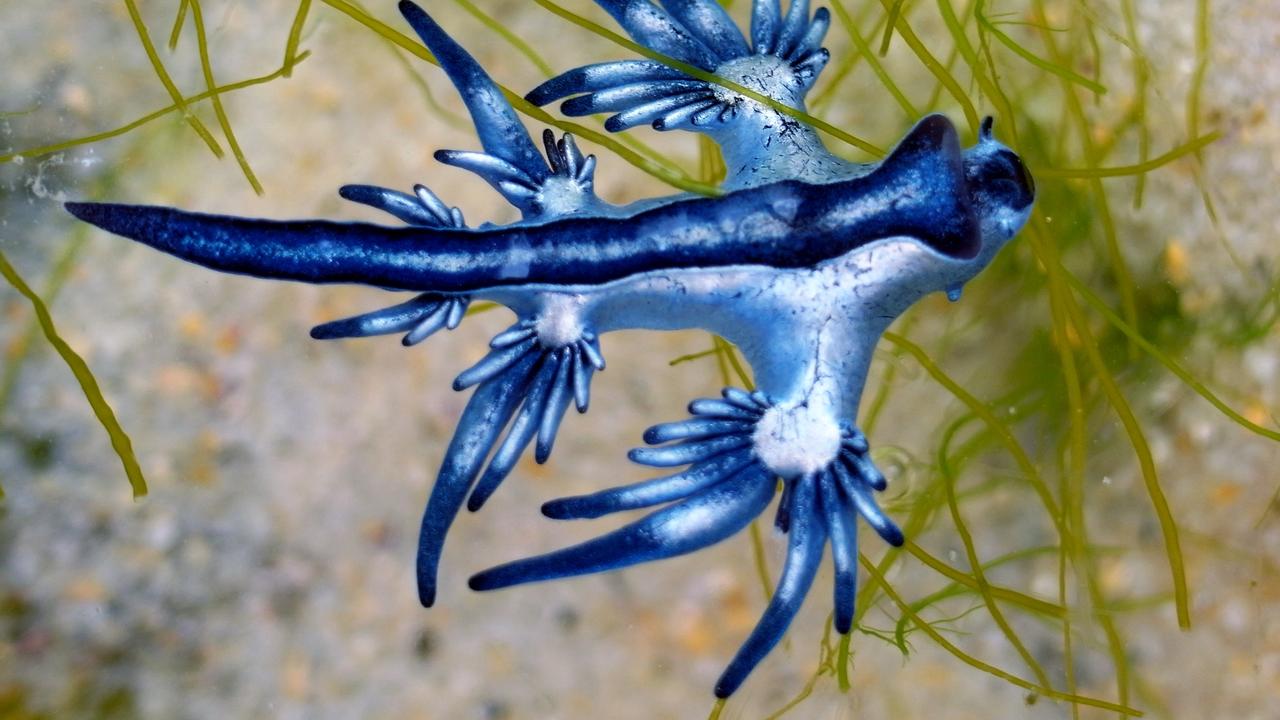
“That’s a glaucus atlanticus and it’s a weird dragon thing that are commonly found on the beaches of Australia,” one person commented. “It is VERY poisonous.”
“Rule of thumb with sea life in the southern hemisphere … if it is vibrant blue it’s a no-no,” another added.
“I have been seeing them all over southeast Queensland.”
It’s not the first time these creatures have been spotted on the east coast of Australia, with the slugs setting up camp there in both 2015 and 2017.



